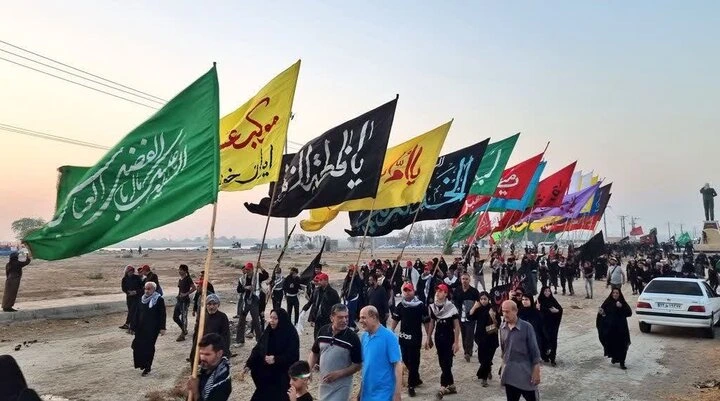Islamabad 27 July: The Pakistani government has announced a ban on road travel for pilgrims heading to Iran and Iraq for Arbaeen this year, citing security concerns.
However, pilgrims will still be allowed to travel by air, with the government promising to increase flight availability.
Interior Minister Mohsin Naqvi on x has confirmed the decision after consultations with the Ministry of Foreign Affairs, Balochistan government, and security agencies.
“The safety of our citizens is our top priority,” Naqvi stated. “Given the current regional situation, we cannot allow Zaireen to travel by road. However, we are facilitating air travel to ensure pilgrims can still perform their religious duties.”
The move comes amid heightened tensions in the Middle East, including recent conflicts involving Israel and Iran. Pakistan’s Foreign Office had earlier advised pilgrims to reconsider travel plans due to security risks.
Prime Minister Shehbaz Sharif has directed authorities to arrange additional flights to accommodate pilgrims. The Civil Aviation Authority has already increased weekly flights to Iran from six to 15, with more expected in the coming weeks.
Starting January 1, 2026, Pakistan will enforce stricter pilgrimage rules, requiring travelers to use only registered tour operators for trips to Iraq and Iran. The measure aims to prevent illegal overstays and ensure pilgrims return safely.
READ MORE: Pakistani Arbaeen pilgrims
Iran’s Visa-Free Offer for Arbaeen
Despite the restrictions, Iran has announced visa-free entry for Pakistani pilgrims from August 4–19, 2025, provided they have valid Iraqi visas and approved travel plans.
While some pilgrims expressed disappointment over the road travel ban, others welcomed the government’s efforts to ensure safety.
“My family has always traveled by road, but if flying is safer, we’ll adjust,” said Raza Ahmed, a pilgrim from Lahore.
A joint working group between Pakistan, Iran, and Iraq will be formed to streamline future pilgrimage arrangements. Authorities are urging pilgrims to follow official guidelines and avoid illegal travel operators.
The number of Zaireen (pilgrims) killed by terrorists in Balochistan over the years is not precisely documented in the provided search results. However, several attacks targeting Shia pilgrims, including Hazara community members (who frequently travel to Iran and Iraq for religious pilgrimages), have been reported.
Notable Attacks on Pilgrims in Balochistan
- 2011 Mastung Attack – Lashkar-e-Jhangvi (LeJ) claimed responsibility for killing 26 Shia pilgrims traveling by bus to Iran4.
- 2013-2014 Quetta & Mastung Bombings – Multiple attacks killed over 200 Shia pilgrims, mostly Hazaras, including a bombing in Mastung that killed 28 pilgrims4.
- 2025 Noshki Attack – While not exclusively targeting pilgrims, a roadside bomb claimed by the Balochistan Liberation Army (BLA) killed security personnel escorting travelers near the Iran border, indicating risks for pilgrims using ground routes









